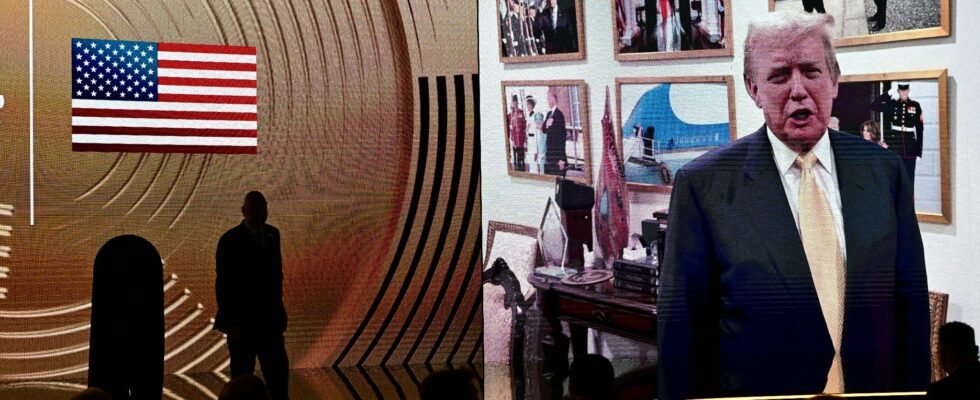Do we have to give up who we are to regain power and freedom? At the dawn of Donald Trump’s second inauguration, we, European business leaders, are concerned by an American trade policy whose aggressiveness risks reaching unprecedented levels, but also by a new exit from the United States. United by the Paris agreement or by the claimed end of diversity and inclusion policies at groups like Walmart, Ford and Harley-Davidson. This counter-revolution therefore pushes us to question ourselves: are we condemned to follow the same path? From the questioning of the Green Deal responsible for leading Europe towards carbon neutrality, to the more marginal calls to import to us the methods of Argentine President Javier Milei or billionaire Elon Musk to attack our social model and our “chainsaw” institutions, the logic is the same: we would have to align ourselves with the rules of the game of competition – mainly American and Chinese – in order to survive. Obviously, in a world where the balance of power dominates, naivety has no place. And naturally, our regulations and our costs must integrate an objective of competitiveness. However, adjustment does not mean giving up.
The threat of dropping out may well be real, but it would be a profound contradiction to respond to it by initiating a race to the bottom which would mean abandoning our European ambitions. In addition to the ecological, social and therefore political consequences of such a scenario, it would be a bad strategic choice. Our weakening results precisely from unbridled globalization and competition. The Covid crisis followed by the war in Ukraine have unequivocally illustrated the dependence and therefore the fragility in which this blind faith in the infallibility of markets places us.
The answer, on the contrary, involves a reaffirmation of our European singularity. If we are in a phase of dropping out, rather than erasing what sets us apart, let’s protect it and make it the basis of our power. Let us choose a balance of power from above rather than from below.
Let’s protect ourselves to better emancipate ourselves
At a time when we want to initiate green reindustrialization and the emergence of sectors of the future in health or semiconductors, let us not be afraid of assumed protectionism for the strategic sectors concerned. Let’s support the European Commission when it increases customs duties on electric cars imported from China and, above all, call for a strengthening of the carbon tax at Europe’s borders. At a time when Airbus, a model of European collaboration, is demonstrating its success in the face of a Boeing eaten away from the inside by systematic short-termism, let us make possible the birth of new European champions so as not to be definitively dominated. At a time when the United States and China are massively subsidizing the transition of their economies, let us give ourselves the means to act through common borrowing, the conditionality of public markets and a deepening of the single capital market. Finally, at a time when rising energy prices are impacting our economies and worsening our trade deficit, let us move relentlessly towards carbon-free, local and sovereign energy. This will be the key to guaranteeing our independence.
But let’s not stop there. The solidity of our response will not only depend on economic, technical and operational choices. It will ultimately depend on a vision that is cultural, societal and political. Europe was built on values of peace, solidarity, human dignity and attachment to democracy. Businesses, of course, have a role to play in keeping these promises alive. Through their strategic choices, their production methods, their governance, recruitment and management practices, companies contribute – or not – to the stability of society and to everyone’s confidence in the future. For 2025, let’s not tremble. Let’s protect ourselves to better emancipate ourselves.
* Pascal Demurger is general director of the Maif group and co-president of the Mouvement Impact France.
.
